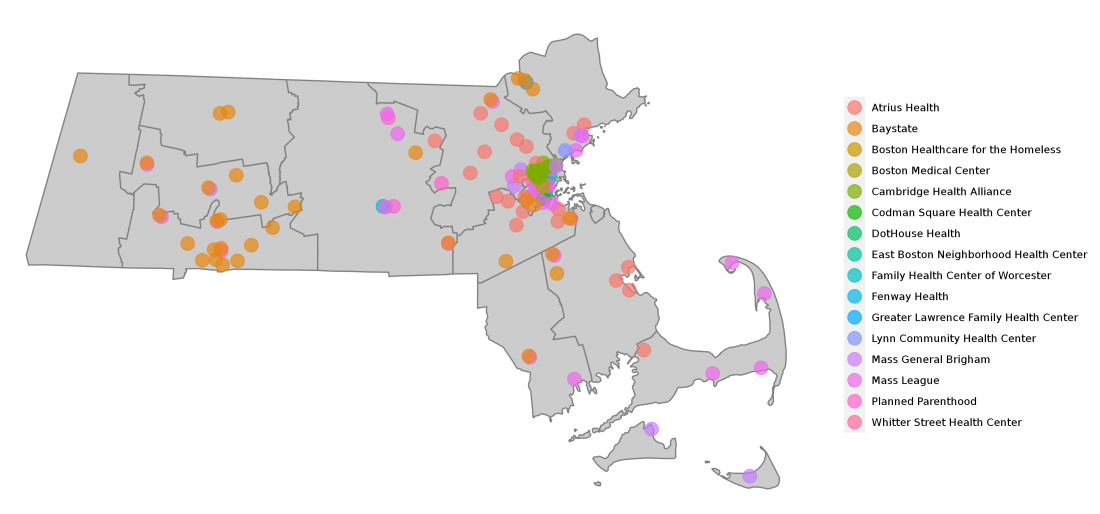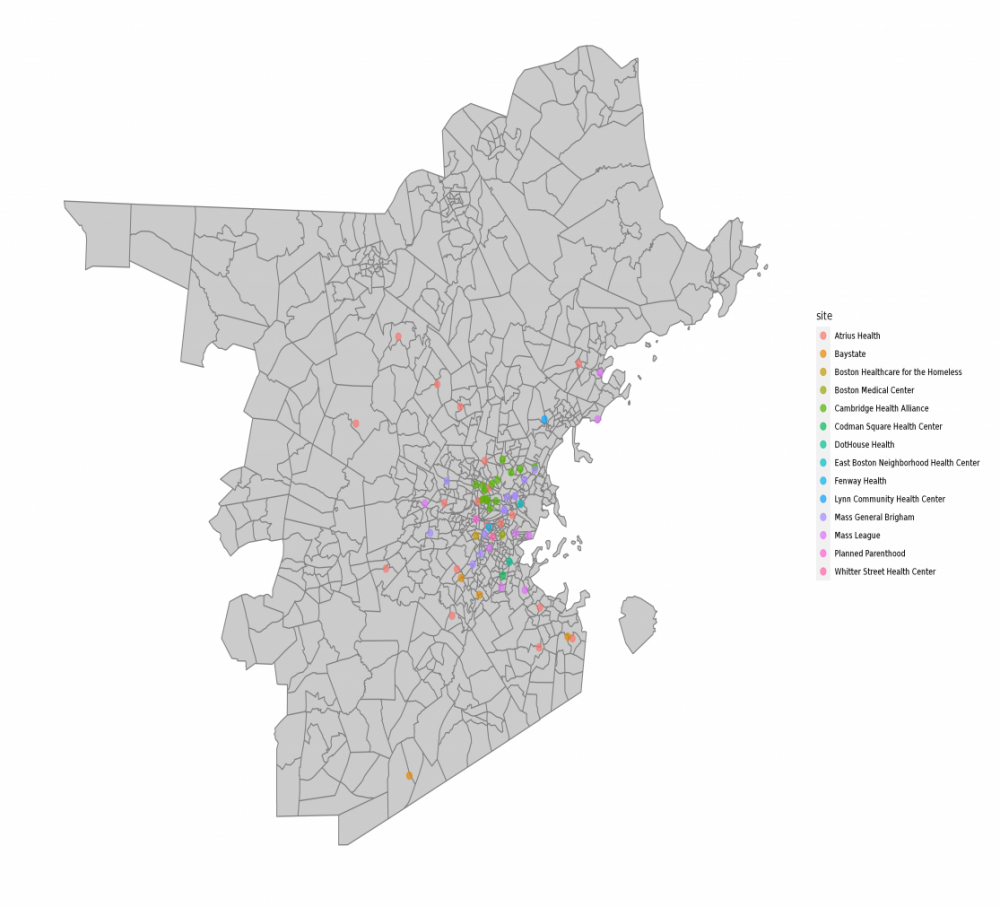Who's Using ESP
Massachusetts
ESP has been fully implemented in Massachusetts. To date, automated reporting of notifiable diseases occurs from several clinical partners via ESP to MAVEN, the Massachusetts Department of Public Health's (MDPH) web-based integrated surveillance and case management system. Longitudinal reporting for chronic Hepatitis C, HIV, and Tuberculosis has been developed, enabling MDPH to monitor the continuum of care of individuals with these infections. Atrius Health, Cambridge Health Alliance, Planned Parenthood of Massachusetts, Fenway Health, Mass General Brigham, Boston Medical Center, Greater Lawrence Family Health Center, Whittier Street Health Center, Boston Healthcare for the Homeless, East Boston Neighborhood Health Center, Codman Square Health Center, DotHouse Health, Lynn Community Health Center, Massachusetts League of Community Health Centers, Family Health Center of Worcester and Baystate Health participate in notifiable disease case reporting. And Berkshire Health, New Bedford Community Health, Lowell Community Health Center, and UMass Memorial Health are currently being onboarded.
Massachusetts has also implemented aggregate-level querying and reporting capabilities (MDPHnet) at three clinical partners which collectively provide care for >20% of the state population. Our partners in MDPHnet are Atrius Health, Cambridge Health Alliance, and the Massachusetts League of Community Health Centers.
 Detail of Greater Boston area:
Detail of Greater Boston area:

Authorized MPDH users can submit queries for relevant health data to participating MPDHnet sites. Practices can review the requested query using an electronic workflow and choose whether or not to allow the query to execute against their local ESP data repository. MDPHnet can generate aggregate summary data on the incidence, population characteristics, and patterns of care for patients with the condition. Partner practices also have the right to query their ESP and MDPHnet instances for these conditions as well as submit custom queries. Sites can analyze their data against adjusted local population disease estimates derived from the census population.
Hospitals and clinics retain full control over their data at all times. MDPHnet runs behind a collaborating practice’s firewall and only transmits data that are explicitly approved by the partner. For repeat or previously-agreed upon queries, the collaborating clinic can choose to automatically approve requests from a specific source to expedite collaboration and obviate the need to repeatedly approve identical requests.
MDPHnet can generate aggregate summary data on the incidence, population characteristics, and patterns of care for patients with the condition. Partner practices also have the right to query their ESP and MDPHnet instances for these conditions as well as submit custom queries. Sites can analyze their data against adjusted local population disease estimates derived from the census population.
Past and current activities of MDPHnet include:
- Surveillance of chronic conditions such as asthma, obesity, hypertension, etc.
- Identifying patients with chlamydia, and gonorrhea who have not received recommended treatments or follow-up testing per CDC guidelines
- Identifying patients with high dose opioid prescriptions for targeted management
- Providing data for Community Health Needs Assessments
- Evaluating the impact of public health programs to address chronic conditions in targeted communities
- Evaluating the impact of public service announcements on diabetes
- Surveillance of influenza-like illness for CDC's ILInet system
Please see our Publications and Presentations page for more information.
RiskScape, a web-based data visualization tool, was developed for the Massachusetts Department of Public Health using data from MDPHnet partners. Users utilize RiskScape to explore health conditions of interest by variables such as gender, age, race, city/town, and other co-morbidities.
Ohio
MetroHealth Cleveland, Ohio - notifiable disease reporting, vaccine adverse event detection and reporting
Texas
Tarrant County, Texas - notifiable disease surveillance
MENDS
ESP Installations are currently ongoing as part of the CDC-funded "MENDS: Multi-state EHR-based Network for Disease Surveillance" project.
- AllianceChicago (in partnership with Chicago Department of Health)
- OneHealthPort (in partnership with Washington State Department of Health)
- REACHnet (in partnership with Louisiana Office of Public Health, New Orleans Health Department, and Texas Department of State Health Services)
- Regenstrief Institute (in partnership with Indiana Department of Health)
- Health Data Compass (to build and test HL7 Fast Healthcare Interoperability Resources, or FHIR)